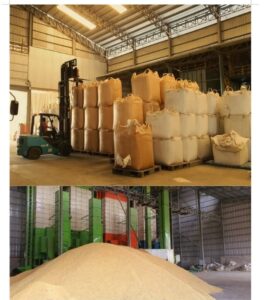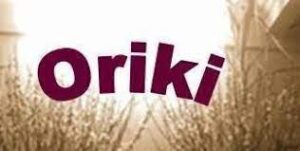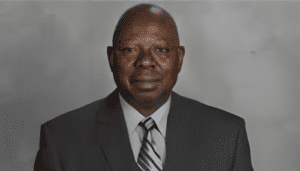
AGRIBEE CAMBODIAN Company appoints Dr. Yaacob as Special Trade Adviser in Africa
…Producing best rice globally
By Matthew Denis Abuja
The most popular and Business Oriented AGRIBEE CAMBODIAN Co. Ltd which is versatile in Agriculture value chain management has appointed, Dr. Sammy Mustafa Yaacob, the Business as the Special Trade Adviser for rice purchasing channel in Africa market.
AGRIBEE has for decades spread her tentacles across the Asian continent and Europe countries with huge customers driving rice products and services. The intended shifts to capture the African multimillions customers demand for rice products on daily supply into various with Nigeria most populous (over 200million people) will be achieved the tireless effort of Dr. Yaacob who is a doyen of Business networking.
Dr Yaacob in collaboration with Mr. Chamroeun MAK, Chairman of AGRIBEE Cambodia Plc, a well skilled and exceptional enterpreneur, will be leading the pioneer Agriculture Value Chain Management in Africa.
The expansion of the company in nternational markets has 23 European countries, Hong Kong, Malaysia, Macau, Arab countries, Gabon and China among others.
Fortunately, garnishing this great opportunity to explore Africa countries to look into Cambodia rice, Investment, Tourism and Trade considering the fact it is the only southeast Asia country using US Dollars for transaction which assist to ease transactions without rancours.

On his part, Mr. Chamroeun MAK has revealed that the AGRIBEE CAMBODIAN rice continues to be appreciated as the best rice globally.
He stated that for four times, in 2012, 2013, 2014, and 2018, Cambodia’s fragrant rice has won the title of World’s Best Rice since entering the competition.
“In 2020, Cambodia produced 10 million tons of rice and exported 690,829 tones for a total of US$538.4 million, an increase of 11.4% over 2019.” For the growth of the Cambodian economy in the upcoming years, the Royal Government has placed rice exports as one of its top priorities.
Explaining further, he stressed that the rice is grown and harvested in a broad swathe of land that runs west to east across the country. The six provinces shown below yield the most popular varieties of White Gold, as rice is known here. Around one-third of the crop comprises varieties of the most valuable fragrant Jasmine Rice.
According to him Cambodia grows many types of rice, and it is divided into two main types: Fragrant Rice and White Rice. There are two main categories of Fragrant Rice.
Premium Jasmine Rice is grown in the wet season and is highly prized for its extra-long grain, soft texture and a distinctive flavor that exudes a strong, natural scent. The most popular name is Phka Malis (Malis mean Jasmine) with varieties such as Phka Rumduol, Phka Romeat, Phka Rumdeng, Somali and Neang MalisTM.
Other Fragrant Rice varieties are grown in the dry season and include Sen Kra Ob and Sen Pidao. These dry season varieties are long-grained, tender and aromatic. Although they share much with their wet season cousins, their scent is milder.


There are many types of White Rice, some of which are grown in the wet season and others that favor the dry season. This is the type of rice that feeds most people in Cambodia
“Premium White Rice is grown in the wet season, and among the most popular types are Ginger Rice, Phka Knhey and Phka Chan-Sen Sar. Once cooked, these varieties typically have a soft consistency. White Rice is grown in both the wet and dry seasons, and has a firmer bite once cooked. Some of the better-known types are Pearl Rice, Neang Khon, Reang Chey, Ponla Pdao and Neang Minh.”
Mr. Chamroeun emphasized that export development starts in the field, the Seed Multiplication Project provides access to higher-quality seeds of the most valuable fragrant rice leading to improved yields and a more homogenous crop. Thus, income increases along the supply chain beginning with the farmers who now earn more from each crop.
“Newer rice mills are highly automated, computer-controlled facilities with increased capacities. Improved quality management helps meeting international standards. Rice husk gasifiers contribute to more economical power generation.
“Cambodia’s rice exports meet stringent inspection and certification requirements, thereby allowing access to key markets such as the EU, China and the United States. In recent years Cambodian rice exporters participated in important international trade fairs and conferences such as The Rice Trader’s World Rice Conference (TRT-WRC) and THAIFEX – World of Food Asia. They embark on Country missions to meet with buyers and distributors in new markets and foster personal relationships to realize the export potential of Cambodia’s White Gold.”
The Driving exports means giving customers what they want. Consumers in Europe, for example, insist on rice of the highest quality while others demand specialty products. Cambodia’s rice satisfies both.
Cambodian rice “is green” : it is naturally grown, is not genetically modified, and is grown with limited use of chemical fertilizers and pesticides.
Organic certifications are on the rise, as are certifications for Fair Trade.
Rice mills are obtaining various quality management and food safety certifications such as ISO, HACCP and GMP.
Valuable varieties such as the award-winning premium Jasmine Rice have been DNA-mapped, which means their purity and authenticity can be guaranteed.
He summoned that parboiled rice is popular in Europe and Africa. To meet this demand, Cambodia’s first parboiling facility opened in early 2013, and more are planned. High-value varieties such as Cambodia’s award-winning premium Jasmine Rice fill a valuable niche market. Fortified rice, which is enriched with minerals and vitamins, is not yet in commercial production in Cambodia but is the subject of a trial project with the World Food Programme
Cambodia knows that to keep consumers satisfied requires an unrelenting focus on food safety, while DNA analysis guarantees the purity and authenticity. Meanwhile, marketing efforts center on promoting Cambodia’s exceptional Premium Fragrant Rice, which lies at the heart of the Kingdom’s greatest culinary dishes.
He summoned that few people know that rice can produce an astonishing diversity of products – far more than ends up on your plate. Looking ahead, scientific advances mean that silicone extracted from rice husk could one day be used in battery electrodes, while another GM-variety of rice is the source of a life-saving vaccine.
“More readily available are consumables such as rice milk, rice paper and rice bran oil, and even building materials such as rice-husk bricks. And for the adults, let’s not forget the variety of rice-derived alcoholic beverages. Among these is the novelty Sombai, a delicious rice rum infused with local spices and fruits, the perfect way to toast the success of Cambodia’s White Gold. Cheers! Or as we say, “Sokpheap La’or!”
Giving an in-depth about the AGRIBEE Company he reiterated that it’s a value chain management using digital technology platform “BeeApp” to facilitates all stakeholders to connect them all in agriculture sector in Cambodia. Through our platform, AGRIBEE facilitates funds, technical assistances, market accessibilities and other support services for all key players to perform their activities to better improve the Cambodia agriculture value chain. The key player are farmers, Agri-input suppliers, crop traders, rice millers, rice exporters as well as financial institutions that are connected to work together through our platform. Therefore, AgriBee will be working with all stakeholders, especially to improve the livelihood of shareholder farmer to ensure the sustainable rice production to end hunger world and increase food security.



